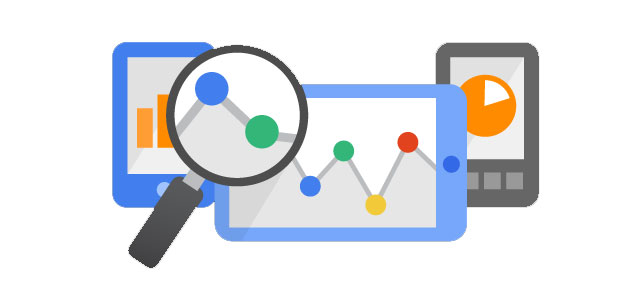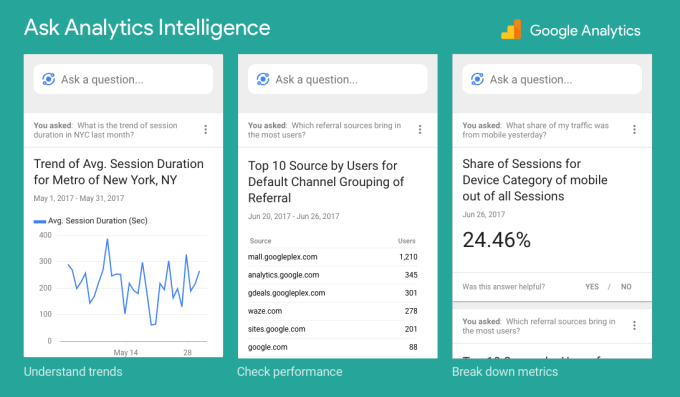Google Analytics adds voice-based navigation

If you’ve got a question about your website or app data, you’ll soon be able to ask Google Analytics directly.
In other words, if you’re wondering “What’s the trend of mobile versus desktop traffic last week?” or “How many new users did we have yesterday?” or “What were our top countries last month?” you won’t have to figure out how to navigate to the correct dashboard in Analytics and tweak the chart to get the data you want.
Instead, you just type in your query in or speak it out loud. In fact, Product Manager Annissa Alusi demonstrated the product for me by asking those three questions. In each case, Google Analytics answered her with the relevant data after just a few seconds.
Senior Director of Measurement and Analytics Babak Pahlavan argued that adding voice and natural language controls isn’t just a small upgrade. It took three years to build, and Pahlavan said it would have taken even longer, except his team built on top of the natural language processing technology that Google’s already using in Android and search.
Why spend all that time on this interface? Well, it allows everyone at a company to ask basic questions for themselves, freeing up data analysts to focus on more complex, strategic issues. And since the voice controls will be available on both desktop and mobile, Pahlavan said users can ask their questions anytime, say “before a board meeting or right before you meet with a customer.”
“Ideally, this will become a new and more accessible interface for analytics overall,” Alusi added.
These controls (currently English-only) will roll out over the next few weeks, starting tomorrow. They’re part of a broader initiative within Google called Analytics Intelligence, which aims to give customers a better understanding of their Google Analytics data — for example, by automatically highlighting the important insights and trends from your data.
Over time, these voice controls are supposed to get smarter by learning what kinds of questions users want answered, individually and collectively. Alusi also said that while the initial product is strongest at answering your “what” questions, it will soon be able to answering the “why” questions as well — going from “How much did our traffic from India grow last month?” to “Why did it grow?”
